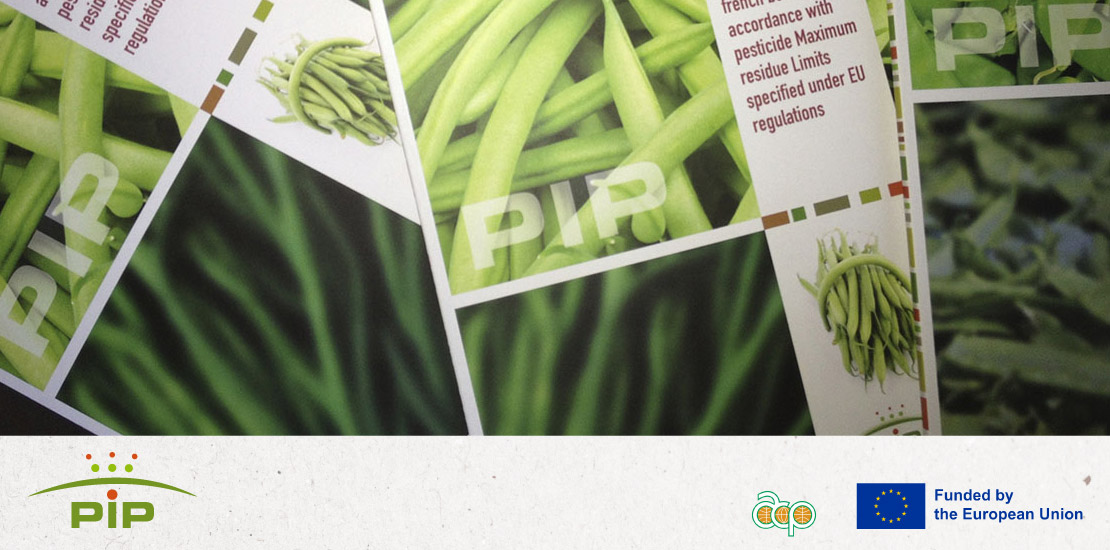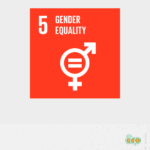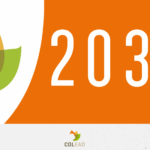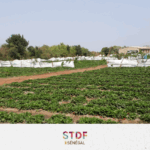FLASHBACK (2004)
- 29/01/2024
- Posted by: Sandra Borma
- Category: News

March 2004: Celebrating the first results of the PIP programme in developing expertise in Africa.
Twenty years ago, COLEAD’s PIP programme achieved its first successes in capacity building in ACP countries, providing economically viable solutions for companies producing and exporting horticultural products. This extract from the March 2004 PIP Magazine highlights “Strengthening the capacities of the horticultural sector”.
Improving the quality of services from suppliers to producers and exporters
ACP producer-exporter countries have a wealth of expertise and local knowledge in various fields. However, there is often a lack of adequately informed and trained structures. While it is crucial to help companies master production and export processes, it is equally important to improve the quality of support and services they receive from their enabling environment.
PIP’s capacity-building efforts with various private and public partners aim to enable these sectors to find economically viable local solutions to their challenges and to improve the ACP horticultural sector’s ability to anticipate future trends. Based on the needs identified by PIP beneficiaries, tailor-made support programmes will be developed to improve the quality of services provided by service providers to ACP producers and exporters. In this context, and in line with the PIP approach, the focus is on the private sector.
In Kenya, for example, PIP is supporting two extension structures to train trainers and improve integrated pest management techniques.
(…) In Senegal, PIP support has focused on upgrading the skills of local extension agents, who have become the programme’s main training agents for the entire sub-region. “Some of these partners, whether private or public, …
The public sector as a key partner for the private sector
The public sector is also indispensable partner. Once the socio-economic impact of the horticultural export sector in a country becomes significant, the public sector can become a deeply involved partner with the potential to strengthen overall capacities. However, it’s not just a question of the public sector being dominant in a country’s horticultural sector; the private sector must also recognise the support needs identified by public partners. In Kenya, for example, the private sector led the PIP to support the Kenyan Pest Control Products Board (PCPB), which is responsible for registering and approving pesticides. In Senegal, the private sector recognised the value of the Plant Protection Directorate’s (DPV) support to smallholder farmers. Similarly, in Cameroon, small pineapple growers are advised by technical agents from the state-appointed CETAM (Centre d’Encadrement Technique Ananas du Moungo).
More generally, when capacity building involves public support structures such as approval services, these entities often face challenges in mastering procedures and disseminating information. PIP experts draw inspiration from practices within the European Union. For example, a key action might be to establish local pesticide databases, improve communication systems and, most importantly, train staff. The PIP offers short-term training courses in Europe for such staff. Where capacity building is targeted at rural support structures (e.g. DPV in Senegal or RADA – Rural Agricultural Development Authority – in Jamaica), which provide systematic training for small-scale producers, PIP focuses on helping them to better master the dissemination of food safety control techniques. It’s worth noting that these bodies can benefit from PIP’s “training the trainers” programme (see PIP Magazine No. 2 and INFO PIP No. 21).
Seeking synergies with other donors and programmes
Finally, PIP actively seeks synergies with other capacity-building support mechanisms established by various donors. For example, in Ghana, where the World Bank has launched a comprehensive food security programme, PIP works closely with the project managers to develop joint activities, including the Ghana Task Force. This collaboration aims to integrate the objectives of a “Food safety cluster” proposed by the World Bank into the framework of the PIP Task Force, thereby avoiding any duplication.
Source: PIP Magazine No. 3
*The PIP programme, funded by the European Union at the request of the ACP Group of States, was implemented by COLEAD during its first phase from 2001 to 2007.





